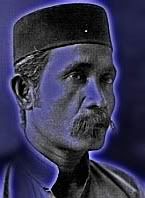A Bend in the Road
Our cousin Hassan opened a grocery store in a bend in the road to Jerteh, in an area called Sungai Tong. His shop front sat on the edge of the road, while the back area where his family lived and ate was propped up by stilts over a dip that gradullly levelled out into green agricultural land that saw other solitary houses spread out over this area of God knows how many men and women and their children eking out a living in the sticks.
Sungai Tong was always a welcome break to us in this long and lonely road that was flanked by thickets, some savannah type open spaces and some solitary women crossing the road to walk in the undulating space that led to the hilly and bushy spaces where they lived. Sometimes there were columns of smoke coming from the back of the belukar, and there were cows mulling quietly by the side of the road. As the sun began to set I feared for the people who might just get lost in the darkness of this lonesome part of earth.
We stopped at Cousin Hassan's shop on our way to Kampung Raja in Besut, or on our way back, often in rainy weather that gave the texture of wet velvet to the darkness of the night. Father would stop the car at the shop front, now shuttered with weak beams of light coming out through the cracks. Cousin Hassan would come out from the back, clad in his sarong pelikat and a white T-shirt. He was always smiling, a smile that was warm but did not directly connect to us as it looked like the culmination of some memories that were coming back to his mind in a reverie that we broke. But by that time Mother and Father would already have been talking to his wife Kak Nab, whose smile was like the moonbeam that lit our faces as the moon itself was a welcome sight.
In daytime Sungai Tong meant that we were probably just another couple of hours from Jerteh where the car would turn to the right into the road that passed through the roadside houses of well-to-do people and the padi fields of Besut district. Sungai Tong meant hot tea and refreshing conversation and sundries that we picked up and insisted on buying from the family shop. The name of the family was on the signboard above and on the side of the shop, Wan Hassan, written in Romanised Malay and in Jawi and in Chinese characters. Cousin Hassan spoke his native Trengganu Malay and Arabic and Japanese very fluently. He wrote in Arabic and Jawi of course, and Kanji and Katakana if you please.
Like most members of our family, he started his life learning Arabic, in a school where his brother, our Cousin Chén, excelled and was soon travelling on a ship to further his studies in Egypt. Cousin Hassan looked at the other side of the globe and became a star pupil in Japanese when the Japanese ruled us for that brief and terrible time, but something or other prevented him from going on to Japan to extend his pursuit.
In our old family album there was a photo of Cousin Hassan, with that same distant smile and in his eyes, a certain sadness. That was a photograph taken when he was detained by the British at a centre in Melaka for alleged activities that were detrimental to colonial life. He wasn't the first member of our family though to be detained by the Brits: one night when the old Sultan Sulaiman English School in Cherong Lanjut was going up in smoke, the colonial police looked up their list of political suspects and rounded up many men including our Uncle Daud. In the short interim between the Japanese surrender and the Brits coming back, a group of brigands called the Bintang Tiga came out of the jungles around Kuala Trengganu and rounded up all potential leaders among Terengganu's men and many of them, including one of Father's friends, were summarily executed. One man they were looking for was Ibrahim Fikri but it was Uncle Daud who bundled him out of Trengganu through a clandestine route that probably took them to Kuala Brang and saved him for Trengganu politics. He later became Trengganu's first elected Menteri Besar and had, among his opponents in another party, his erstwhile saviour and our Uncle Daud.
We are a motley breed of men and women in our family with Cousin Hassan and his brother Salleh in the bull-headed brand of politics (or cap ppala lembu, as the socialists were called in Trengganu), his brother Hussein threw in his lot with the PMIP, latterly known as PAS, while our uncle Daud became a strong supporter of Dato' Onn Jaafar and was for a very long time in Party Negara until the party fizzled out and Uncle Daud resurfaced with the Trengganu UMNO crowd. His sister Mariam (who was known to us simply as Wan) was a card-carrying UMNO lady, as was Ayöh Ngöh, another sibling, and Ayöh Long, their half-brother (and father to our Cousins Chén, and Salleh and Hassan), who all flew the UMNO flag. Here I can just see Father standing in the sideline, looking bemusedly at the goings on and nursing his distrust of politicians and politics, a trait that I have inherited from him with great and growing gratitude.
Cousin Hassan knew the two socialist stalwarts Ahmad Boestaman and Ishak "Pak Sako" Haji Muhammad, but on the whole I think he was very much a loner and an outsider who nursed his own private thoughts. His shop in Sungai Tong was a statement of his own belief that a man has to be self-sufficient and a believer in the dignity of work.
Labels: Ahmad Boestamam, Cousin Chén, Dato Onn Jaafar, Ishak Haji Muhammad, Pak Sako, Sungai Tong, Uncle Daud


